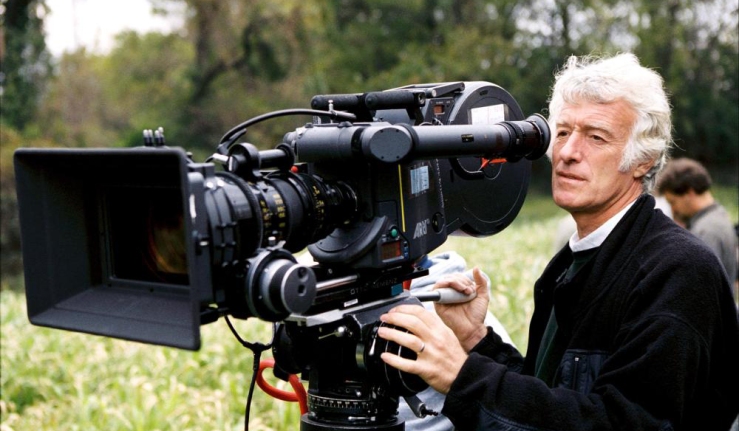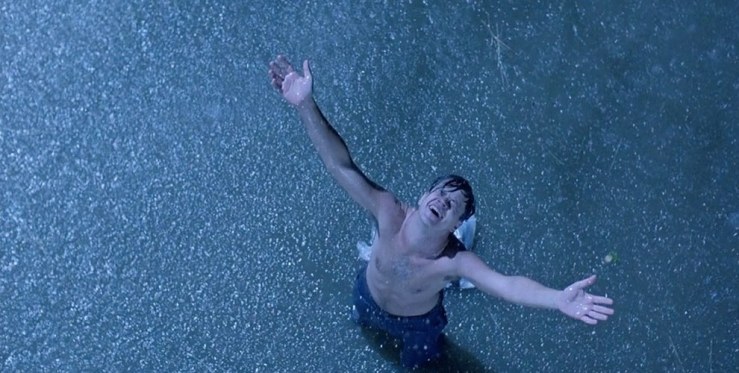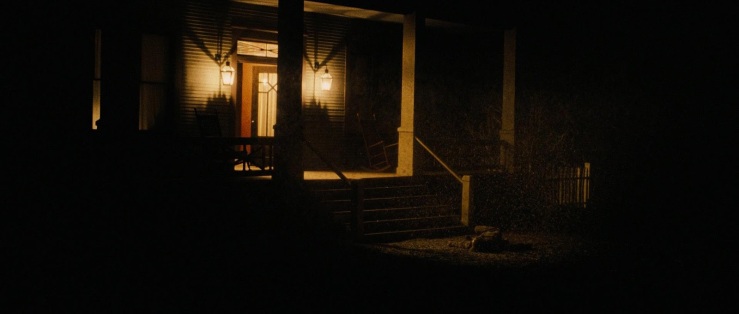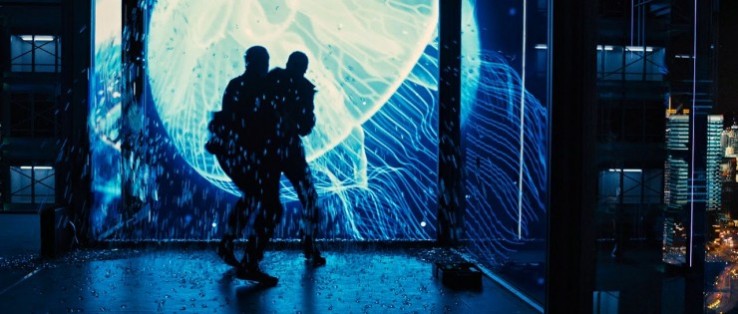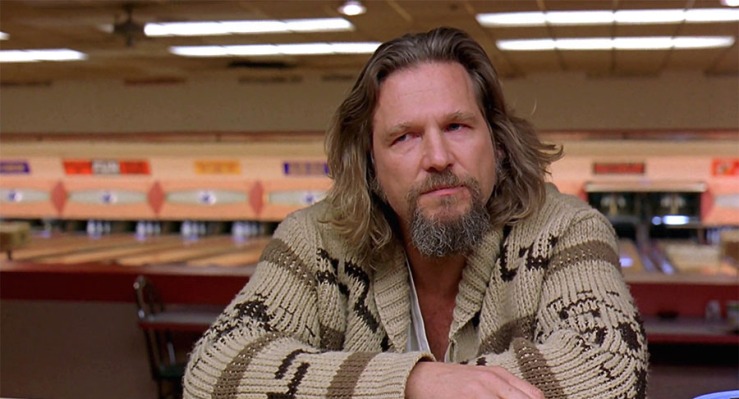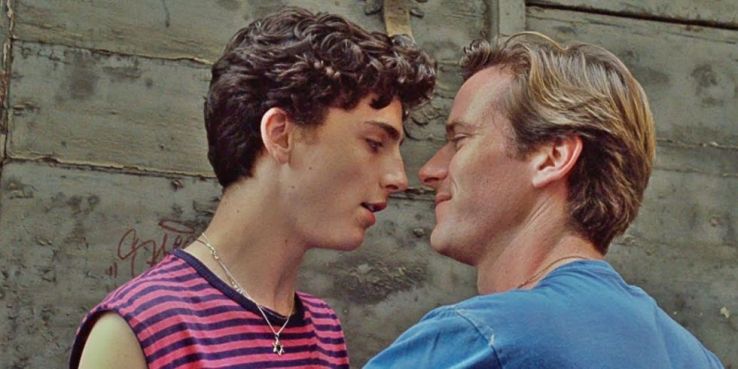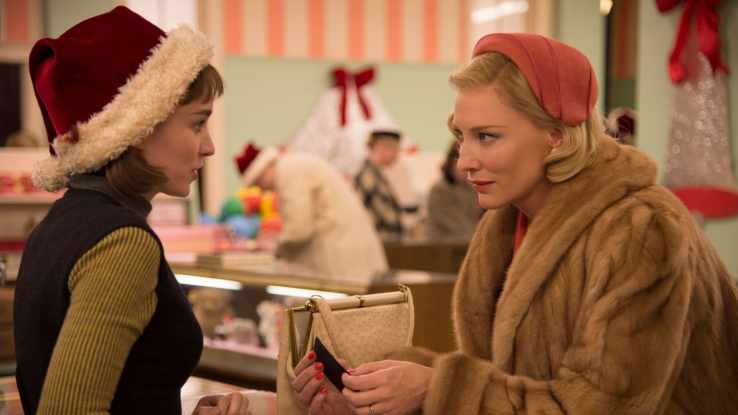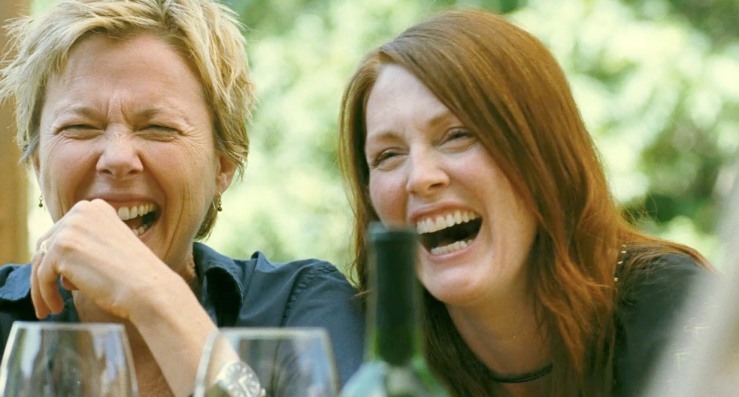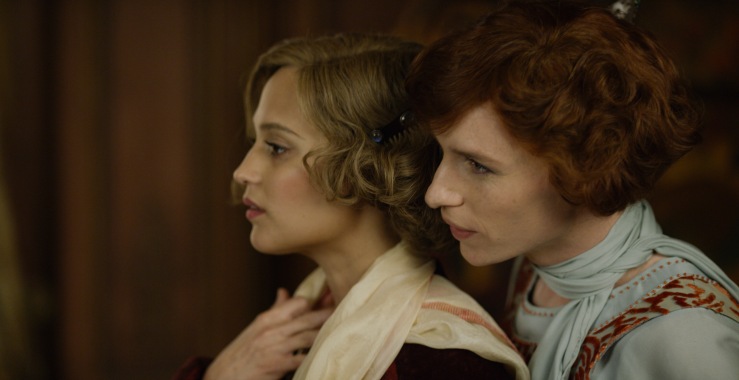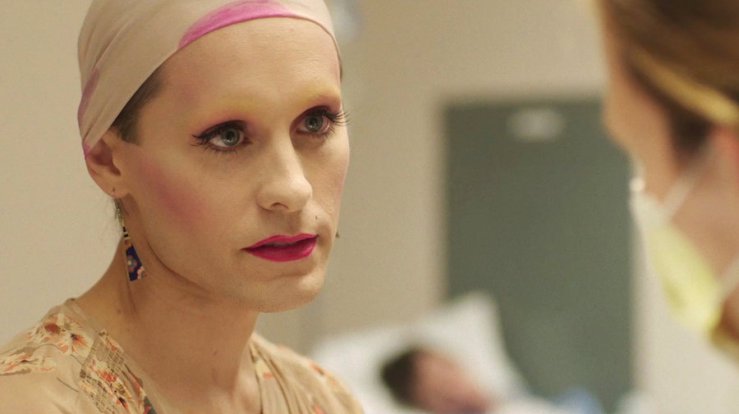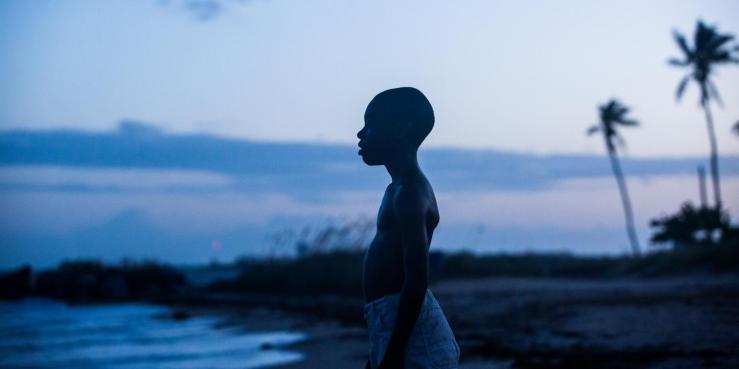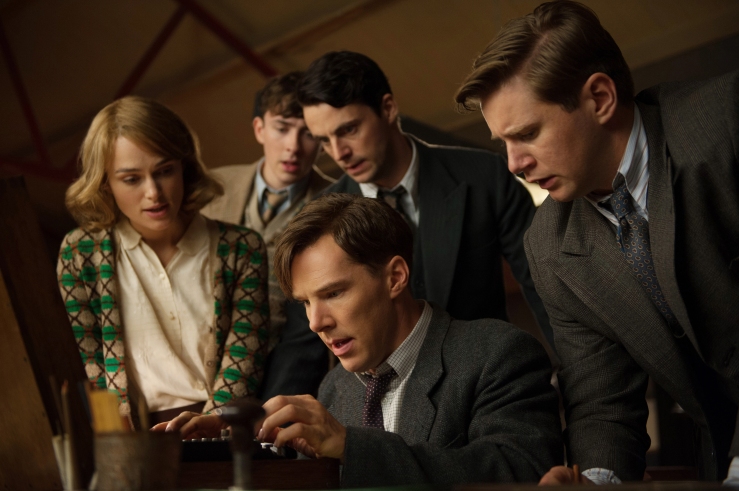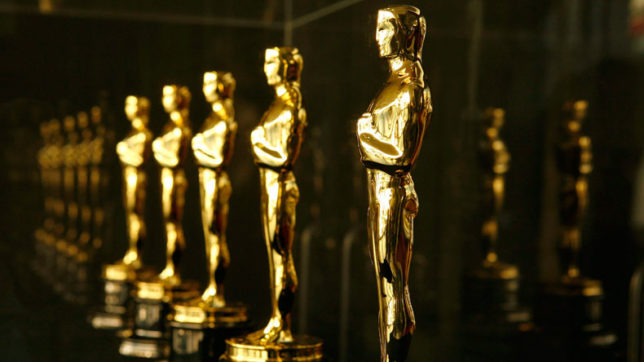 Tomorrow night, the Oscars will be upon us for the 90th time, and the Academy seems to be doing everything in its power to reboot after a year’s worth of mishaps and mistakes on Hollywood’s part. And also of their own doing. While most people ended up throwing away their predictions for last year in a wild dumpster fire, this year seems to be both safer and harder to predict. There are obvious “safe” films that will likely win major awards, but then there seems to be a dark horse in every category (even the tech awards) that actually has a shot at taking home the gold. That’s what this final blog post on the 90th Academy Awards will focus on, predicting who will most likely win, as well as who could win. And just for the fun of it, I’ll throw in my own personal opinions on who should win.
Tomorrow night, the Oscars will be upon us for the 90th time, and the Academy seems to be doing everything in its power to reboot after a year’s worth of mishaps and mistakes on Hollywood’s part. And also of their own doing. While most people ended up throwing away their predictions for last year in a wild dumpster fire, this year seems to be both safer and harder to predict. There are obvious “safe” films that will likely win major awards, but then there seems to be a dark horse in every category (even the tech awards) that actually has a shot at taking home the gold. That’s what this final blog post on the 90th Academy Awards will focus on, predicting who will most likely win, as well as who could win. And just for the fun of it, I’ll throw in my own personal opinions on who should win.
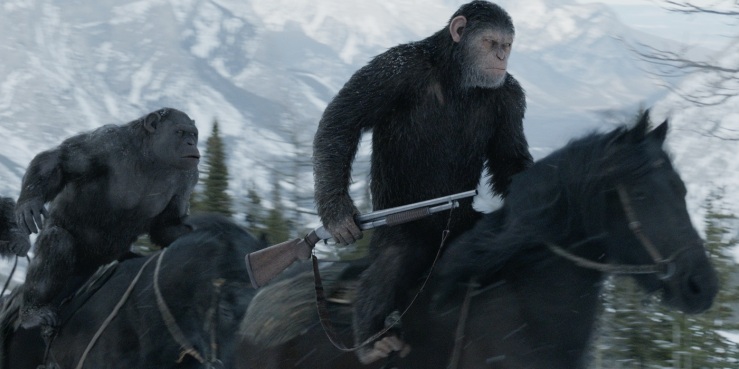 BEST VISUAL EFFECTS
BEST VISUAL EFFECTS
Will win: War for the Planet of the Apes
Could win: Blade Runner 2049
Should win: Blade Runner 2049
After the first two films in the rebooted Planet of the Apes franchise lost this one to Hugo and Interstellar, the third film comes out in a year where all the VFX nominees are blockbusters. The guilds favor the strides this franchise takes in motion capture technology, as do the Critics Choice Awards. But just as favored at the BAFTAs is Blade Runner 2049 and the creation of the dystopian future filled with Replicants and flying cars. Neither film has precedence winning the VFX Oscar (the original Blade Runner lost to E.T. The Extra-Terrestrial), so history will be made for one franchise or the other.
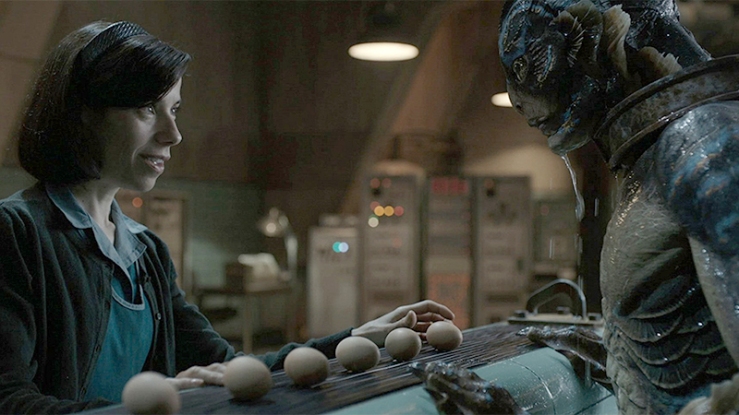 BEST PRODUCTION DESIGN
BEST PRODUCTION DESIGN
Will win: The Shape of Water
Could win: Blade Runner 2049
Should win: The Shape of Water
A period piece set in the 1950s winning Best Production Design? Big shocker! While this would’ve been a fairly safe bet from the beginning, The Shape of Water has been cleaning up this category on the awards circuit. The guilds love it too, but also worth keeping in mind is that the guilds often have multiple sub-categories in which they can award other films. This year, it was Blade Runner 2049 that took those major subcategories and found its way to the Oscar nominees, though it may be a case where the nomination is its own reward.
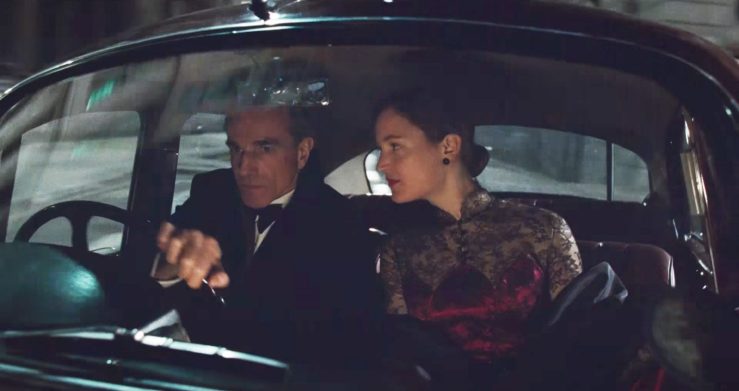 BEST COSTUME DESIGN
BEST COSTUME DESIGN
Will win: Phantom Thread
Could win: The Shape of Water
Should win: The Shape of Water
Being about fashion as it is, it should be no surprise that Phantom Thread has been cleaning house in this category. Every major voting body is falling head-over-heels in love with this one, with the exception of one major body that could end its big streak: the guild. They instead went over to The Shape of Water, which had better costuming in my opinion anyway in that you could tell in an instant where and when the film was set. One of the biggest issues with Phantom Thread is that you could never tell what location or decade the setting was, and you’d think the costumes would’ve done that. But if Daniel Day-Lewis doesn’t take home his fourth acting trophy, this would be the Academy’s way of honoring his supposed final performance.
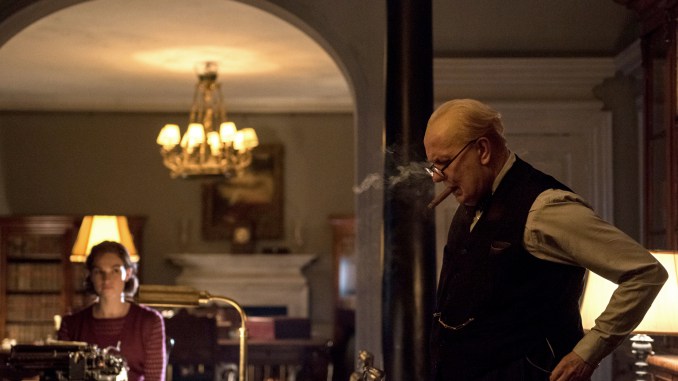 BEST MAKEUP AND HAIRSTYLING
BEST MAKEUP AND HAIRSTYLING
Will win: Darkest Hour
Could win: Victoria & Abdul
Should win: Darkest Hour
Everybody loves Gary Oldman in a fat suit, so I wholly expect Darkest Hour to win in this category. It doesn’t appear to be facing any strong competition, but Suicide Squad won this category last year, so anything is possible. With that being said, the most likely alternative would be Victoria & Abdul, which only has one other nomination. If the Academy wants to reward that film for something, this is a possibility. And while I did pick Darkest Hour as the “rightful” winner, it should be noted that I haven’t seen either of the other nominees, and I will never understand why Best Makeup and Hairstyling only has three nominees as opposed to five.
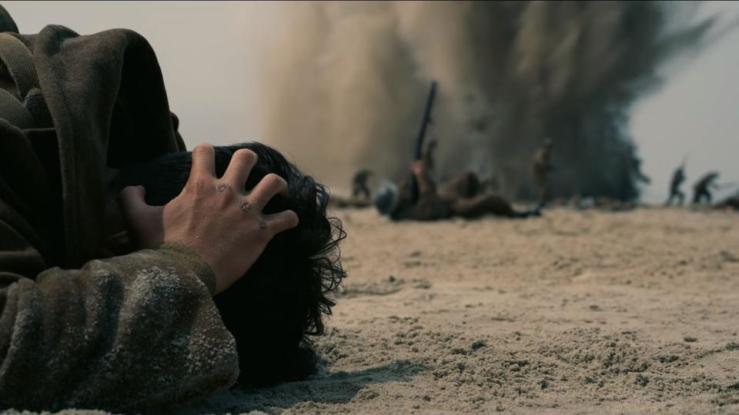 BEST SOUND EDITING/MIXING
BEST SOUND EDITING/MIXING
Will win: Dunkirk
Could win: Blade Runner 2049
Should win: Dunkirk
Dunkirk will most likely take home both sound awards, as it is heavily favored by the guilds and other voting groups like the Critics Choice Awards and the BAFTAs. And it should be, as the sound and score are so perfectly integrated into each other that it helps create a unique cinematic experience. But just as we discussed earlier, the guilds have sub-categories, and that’s where Blade Runner 2049 is building a lot of support. The Academy is known for their aversion to blockbusters, but we must remember upsets by Suicide Squad, Fantastic Beasts and Where to Find Them, and Mad Max: Fury Road in the technical categories, so there is the off-chance that Blade Runner 2049 could take home quite a few awards this year.
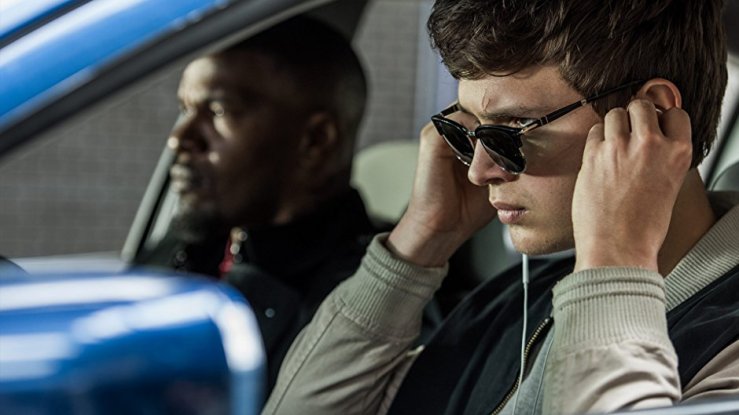 BEST FILM EDITING
BEST FILM EDITING
Will win: Baby Driver
Could win: Dunkirk
Should win: Dunkirk
Going into the awards season, everyone thought this was Dunkirk‘s to lose, as its non-linear editing structure kept the stories moving along until they intersected at an explosive crescendo. However, we then saw the film tie with Baby Driver at the Critics Choice Awards, and lose completely to that same film at the BAFTAs. The only saving grace for Dunkirk is the guild didn’t go for its strongest competition at all, but will it be enough to push it past the current frontrunner?
 BEST CINEMATOGRAPHY
BEST CINEMATOGRAPHY
Will win: Blade Runner 2049
Could win: Dunkirk
Should win: Dunkirk
The Academy is notoriously adverse to blockbuster filmmaking, but they also love rewarding an overdue master, and that’s exactly what Roger Deakins is. Fourteen nominations in without a single win, Oscar would love to reward him for his efforts in some of his best work. That being said, the Academy is still adverse to blockbusters, so they could go looking for something else to reward. Dunkirk‘s entrancing experience is largely due to its cinematography, so don’t be too surprised if Roger Deakins loses yet another award. But as of now, this is the one category where Blade Runner 2049 is the undisputed frontrunner.
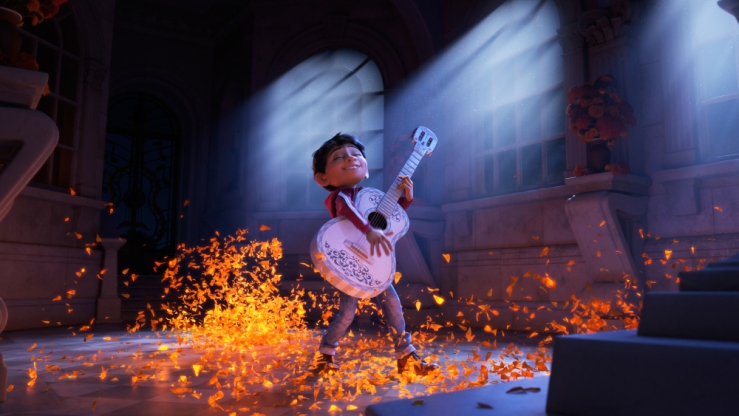 BEST ANIMATED FEATURE
BEST ANIMATED FEATURE
Will win: Coco
Could win: The Breadwinner
Should win: Coco
Doubt Pixar at your peril. Outside of Monsters, Inc. and Cars, every nominee they’ve offered to Oscar has walked away winning, even the less-than-stellar ones (ahem, Brave). But again, sub-categories, and the Annie Awards do have a few of those, including one for independent animation. The Breadwinner managed to take home that one, but will it hold up against the studio power that keeps the champion’s belt in Pixar’s corner? Well, this is the same studio power that got a nomination for The Boss Baby, so…
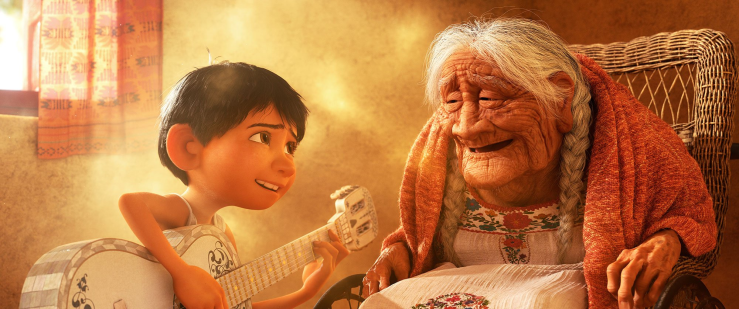 BEST ORIGINAL SONG
BEST ORIGINAL SONG
Will win: “Remember Me” (Coco)
Could win: “This Is Me” (The Greatest Showman)
Should win: “Remember Me” (Coco)
This category loves animation. This category also loves Disney, which happens to specialize in animation and own Pixar. This category also loves a song that can have multiple meanings depending on who sings it, which is exactly what “Remember Me” is. But in a way, that’s also what “This Is Me” is, and this category also loves musicals. But The Greatest Showman has an uphill battle due to its mixed critical reception, which is largely in part due to the same meaning being derived from all of its songs that sound the same. Coco took one song and made it sound and feel different every time, and most of the precursor awards seems to agree. The Golden Globes went with “This Is Me”, but I feel like Disney has already acquired this one.
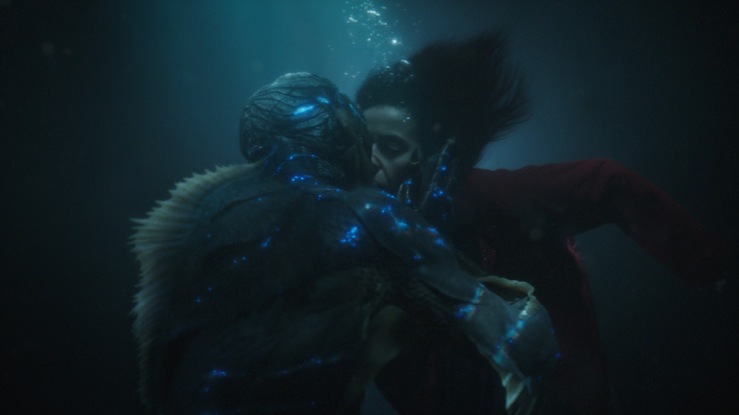 BEST ORIGINAL SCORE
BEST ORIGINAL SCORE
Will win: The Shape of Water
Could win: Dunkirk
Should win: Dunkirk
Yet another instance where The Shape of Water is drowning out the competition, it seems that there’s no stopping Alexandre Desplat from winning his second Oscar, his first being a surprise win for The Grand Budapest Hotel. But his first win was a surprise, so the same thing could happen to him this time around, and Dunkirk is taking home all the sound awards. Since its sound design is blended seamlessly with its score, there is a chance that Hans Zimmer could also take home his second Oscar, his first one being… The Lion King?!
 BEST ADAPTED SCREENPLAY
BEST ADAPTED SCREENPLAY
Will win: Call Me By Your Name
Could win: The Disaster Artist
Should win: The Disaster Artist
For some reason, Call Me By Your Name is winning this category in spades, which means I may be drunk by the time the ceremony is over. But it didn’t start out that way, as the National Board of Review gave this category to The Disaster Artist, which lost out on a highly-anticipated Best Actor nomination for James Franco. Since Call Me By Your Name is present in three other categories, it’s possible that the Academy may go for the film about Hollywood and reward The Disaster Artist in the only category it was nominated for. Or they’ll go for the one starring Armie Hammer as a gay pedophile, I don’t know. We’ll see how drunk I get tomorrow.
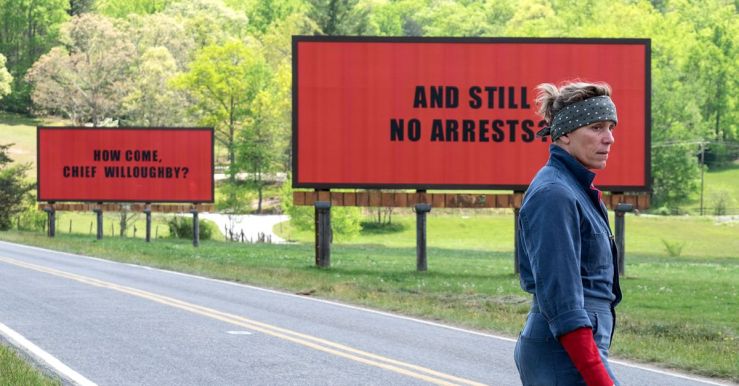 BEST ORIGINAL SCREENPLAY
BEST ORIGINAL SCREENPLAY
Will win: Three Billboards Outside Ebbing, Missouri
Could win: Get Out
Should win: The Shape of Water
This one has been in a little more turmoil, as what was perceived to be the frontrunner in Three Billboards Outside Ebbing, Missouri was not nominated at the Writer’s Guild of America. It also lost at the Critics Choice Awards to Get Out, which later took home the top prize at the WGA. Unlike The Shape of Water, Get Out is not the strongest competitor for Best Picture, so this could be where the Academy decides to reward the horror-comedy written by Jordan Peele. But with the backing of the Golden Globes and the BAFTAs, as well as being a top contender for Best Picture, the safe bet would be Three Billboards Outside Ebbing, Missouri.
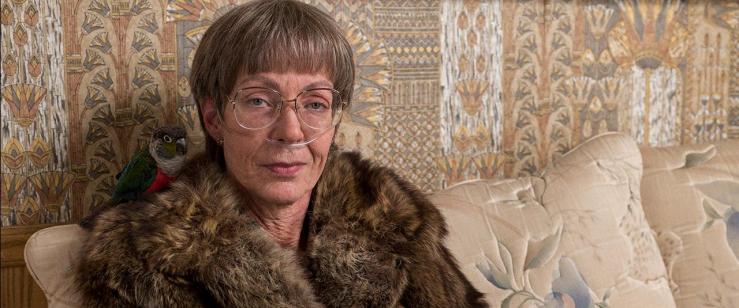 BEST SUPPORTING ACTRESS
BEST SUPPORTING ACTRESS
Will win: Allison Janney (I, Tonya)
Could win: Laurie Metcalf (Lady Bird)
Should win: Laurie Metcalf (Lady Bird)
Allison Janney has dominated this category just as she dominates I, Tonya. I don’t see that changing come Oscar Sunday, but the National Board of Review can still unveil a dark horse, and this year it was Laurie Metcalf. Janney is a dominating force with little range or development, though her performance is fantastic. Metcalf, on the other hand, is one of the driving forces of Lady Bird, and I would contend that the film wouldn’t be as good as it was without her nuanced performance. So when the competition is between nuance and domination, we’ll have to see which the Academy values more this year.
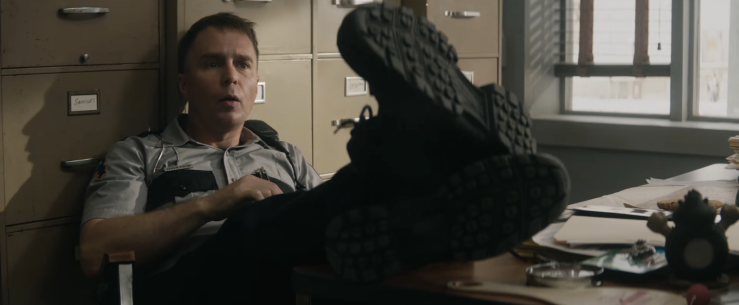 BEST SUPPORTING ACTOR
BEST SUPPORTING ACTOR
Will win: Sam Rockwell (Three Billboards Outside Ebbing, Missouri)
Could win: Willem Dafoe (The Florida Project)
Should win: Willem Dafoe (The Florida Project)
Again, the National Board of Review went with Willem Dafoe. Again, this is the only category that recognized The Florida Project. And again, it may be shut out by a more high-profile film with an overdue actor. Unlike many overdue performers, Sam Rockwell would be winning for his first nomination, and his performance will certainly be one of the highlights of his career regardless. It also doesn’t hurt that he’s playing a racist cop with a three-dimensional arc. But how much of that is the actor versus the screenplay? And that’s why Willem Dafoe should be taken seriously as a dark horse.
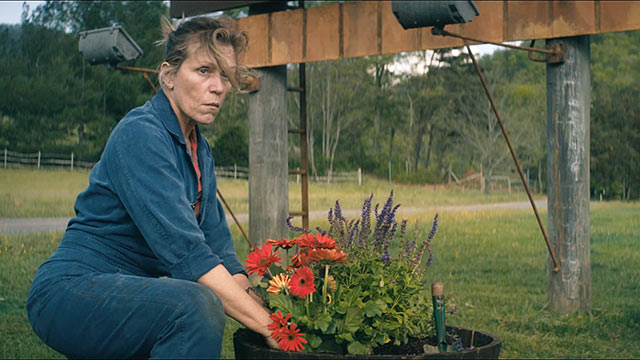 BEST ACTRESS
BEST ACTRESS
Will win: Frances McDormand (Three Billboards Outside Ebbing, Missouri)
Could win: Meryl Streep (The Post)
Should win: Sally Hawkins (The Shape of Water)
The #MeToo movement is one of the driving forces behind this year’s politically-charged Oscars, and that’s why Three Billboards Outside Ebbing, Missouri has become a force to be reckoned with. Despite winning an Oscar already for Fargo, Frances McDormand looks to be the frontrunner to take home the trophy this year. But despite comedic winners at the Golden Globes and Critics Choice like Saoirse Ronan (Lady Bird) and Margot Robbie (I, Tonya), the real dark horse is NBR’s pick: Meryl Streep. The Post was only recognized in this category and Best Picture, and in this anti-Trump age the Academy could look for a way to get Streep on stage and speak out against both the President and sexual harrassment. But let’s be honest, Sally Hawkins gave us a much more relatable character without ever saying a word.
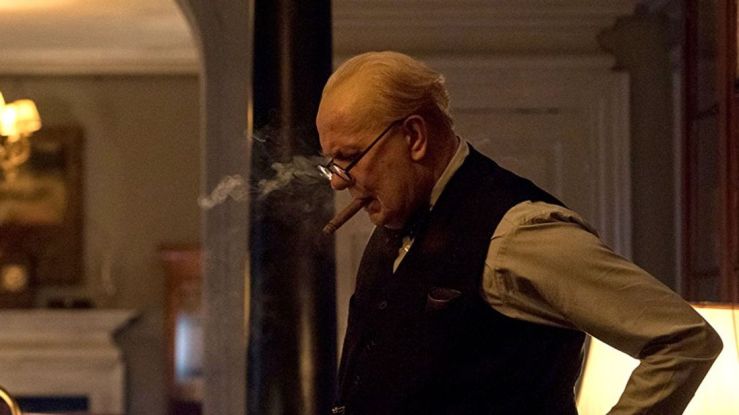 BEST ACTOR
BEST ACTOR
Will win: Gary Oldman (Darkest Hour)
Could win: Daniel Day-Lewis (Phantom Thread)
Should win: Daniel Kaluuya (Get Out)
Everybody loves Gary Oldman in a fat suit. It’s reason for Darkest Hour to win for makeup, and it’s definitely reason for Gary Oldman to win Best Actor. James Franco (The Disaster Artist) would’ve been his only serious competition had he not been snubbed, so finding a dark horse here required me to grasp at straws. There’s honestly not a lot of buzz building around any of these actors, not even Daniel Kaluuya. But there is buzz about Daniel Day-Lewis presumably retiring from acting, so there’s a slim chance he takes this one as a parting gift. But for that performance that anyone could’ve done? As much as I disliked the movie, I think Oldman would be the more deserving of the two.
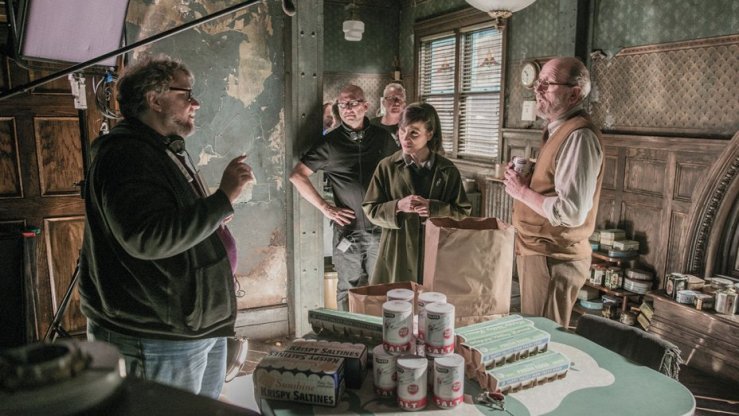 BEST DIRECTOR
BEST DIRECTOR
Will win: Guillermo del Toro (The Shape of Water)
Could win: Greta Gerwig (Lady Bird)
Should win: Guillermo del Toro (The Shape of Water)
NBR surprised us and went with Greta Gerwig. The Director’s Guild of America rewarded Jordan Peele (Get Out) as a first-time director. Both of their directing feats are nothing to scoff at, but Guillermo del Toro has been sweeping this category just as his film has in every other category it’s been leading in. I highly doubt that’ll change, especially since The Shape of Water is a strong contender for a number of other awards, including…
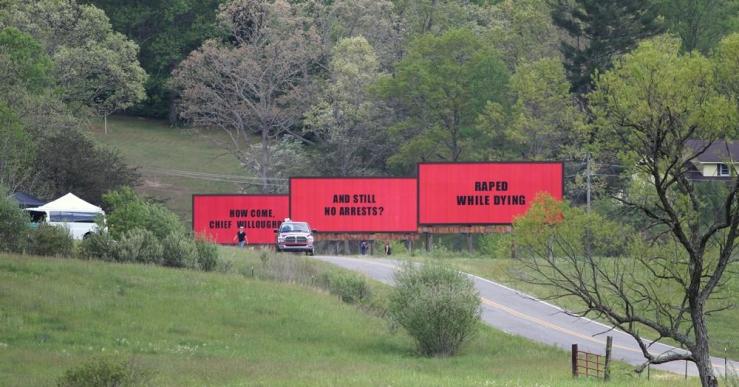 BEST PICTURE
BEST PICTURE
Will win: Three Billboards Outside Ebbing, Missouri
Could win: The Shape of Water
Should win: The Shape of Water
This was tough at first, as for awhile there was no clear frontrunner. NBR went with The Post, the Golden Globes went with Lady Bird in comedy, Critics Choice picked Get Out for horror, Call Me By Your Name is dominating screenplay wins, and Phantom Thread surprised everyone just by being nominated. But amidst the ashes of violent competition, two frontrunners kept fighting until the very end. The Shape of Water won Critics Choice and the Producers Guild of America, and it’s the indisputable leader in the Best Director race. Three Billboards Outside Ebbing, Missouri took the Golden Globes and the BAFTAs, as well as the SAG Ensemble, so it’s currently the safe bet. But it still has to fight to win for its screenplay, and Martin McDonagh missing out on a Best Director nomination is a big deal as very few Best Picture winners have ever not been nominated for Best Director. It’s gonna be a photo finish just like last year, but our only saving grace is that maybe Warren Beatty and Faye Dunaway will be given the correct envelope this time.
And that concludes my pre-Oscars commentary. I may write something on Monday to recap the actual winners, but these are my predictions going in. I’m curious to know what you think. Leave your thoughts in the comments section below, and may the best (or most heavily-marketed) movies win!



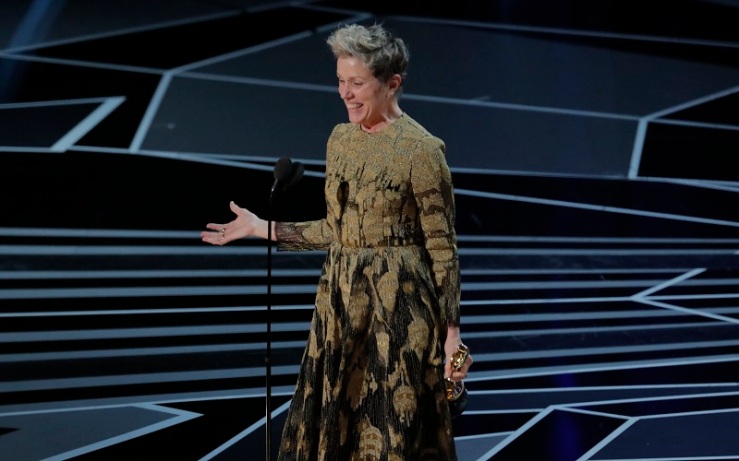

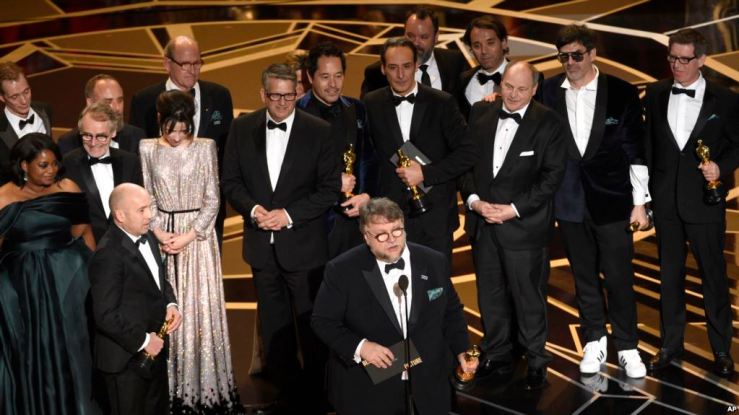



 Tomorrow night, the Oscars will be upon us for the 90th time, and the Academy seems to be doing everything in its power to reboot after a year’s worth of mishaps and mistakes on Hollywood’s part. And also of their own doing. While most people ended up throwing away their predictions for last year in a wild dumpster fire, this year seems to be both safer and harder to predict. There are obvious “safe” films that will likely win major awards, but then there seems to be a dark horse in every category (even the tech awards) that actually has a shot at taking home the gold. That’s what this final blog post on the 90th Academy Awards will focus on, predicting who will most likely win, as well as who could win. And just for the fun of it, I’ll throw in my own personal opinions on who should win.
Tomorrow night, the Oscars will be upon us for the 90th time, and the Academy seems to be doing everything in its power to reboot after a year’s worth of mishaps and mistakes on Hollywood’s part. And also of their own doing. While most people ended up throwing away their predictions for last year in a wild dumpster fire, this year seems to be both safer and harder to predict. There are obvious “safe” films that will likely win major awards, but then there seems to be a dark horse in every category (even the tech awards) that actually has a shot at taking home the gold. That’s what this final blog post on the 90th Academy Awards will focus on, predicting who will most likely win, as well as who could win. And just for the fun of it, I’ll throw in my own personal opinions on who should win. BEST VISUAL EFFECTS
BEST VISUAL EFFECTS BEST PRODUCTION DESIGN
BEST PRODUCTION DESIGN BEST COSTUME DESIGN
BEST COSTUME DESIGN BEST MAKEUP AND HAIRSTYLING
BEST MAKEUP AND HAIRSTYLING BEST SOUND EDITING/MIXING
BEST SOUND EDITING/MIXING BEST FILM EDITING
BEST FILM EDITING BEST ANIMATED FEATURE
BEST ANIMATED FEATURE BEST ORIGINAL SONG
BEST ORIGINAL SONG BEST ORIGINAL SCORE
BEST ORIGINAL SCORE BEST ADAPTED SCREENPLAY
BEST ADAPTED SCREENPLAY BEST ORIGINAL SCREENPLAY
BEST ORIGINAL SCREENPLAY BEST SUPPORTING ACTRESS
BEST SUPPORTING ACTRESS BEST SUPPORTING ACTOR
BEST SUPPORTING ACTOR BEST ACTRESS
BEST ACTRESS BEST ACTOR
BEST ACTOR BEST DIRECTOR
BEST DIRECTOR BEST PICTURE
BEST PICTURE
